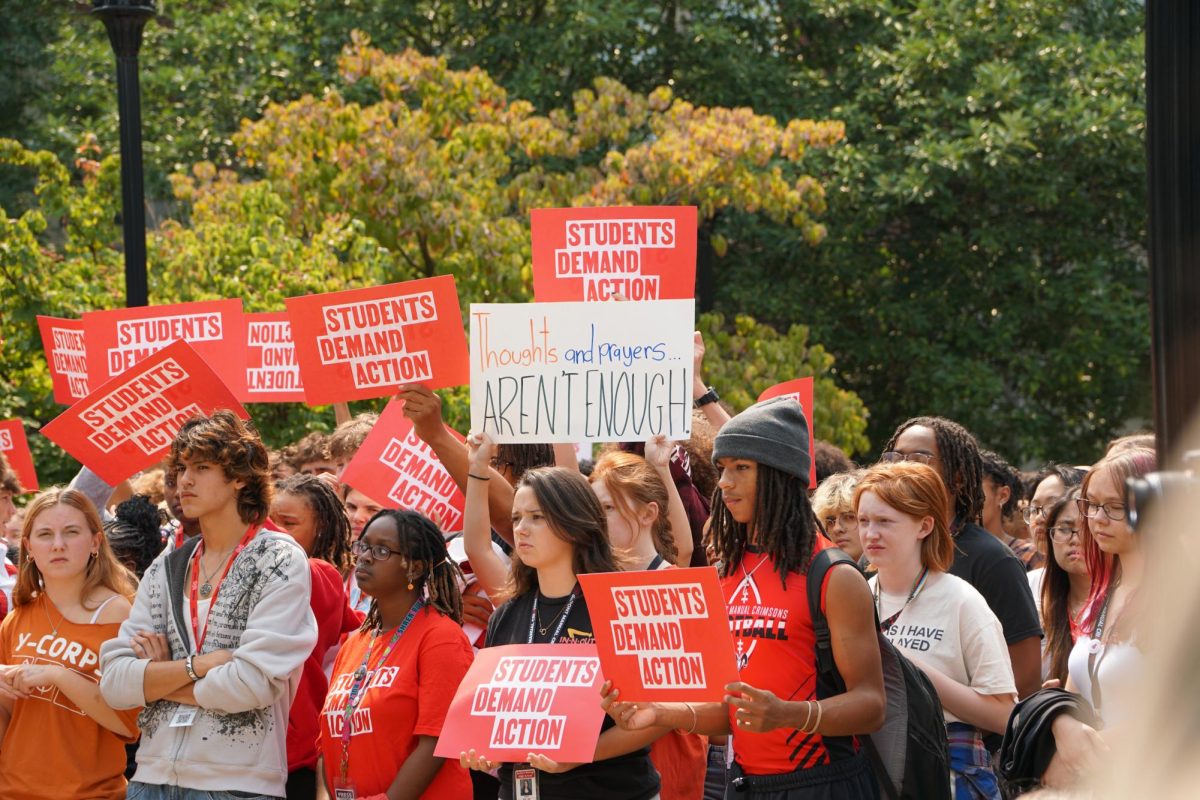Schools across the Austin Independent School District are reinforcing a mandated state law requiring students to maintain at least 90% attendance in a class to receive credit for their transcript.
“The 90% attendance law was put in place by the state and says that if a student attends school less than 90% of the class days, they won’t receive credit for the course,” school improvement facilitator Whitney Vohl said. “Even if the student’s grade is passing, they would still lose the credit.”
The requirement for 90% attendance is a state law, but AISD has not had to enforce it during recent years. The state offered districts with waivers during the Covid years, and AISD has previously been eligible for the waiver until it was revoked this year.
“It was still the state law, but the state was supplying districts with waivers,” Vohl said. “They didn’t have to enforce the law and were able to find alternate, creative, and campus-central solutions.”
Attendance was difficult for schools to manage during Covid taking into consideration all the factors of online school, so districts began looking for different strategies to help kids still receive credit during that time.
“There were ways that schools could be creative in assisting kids to still be eligible for their credit even if they didn’t meet that 90% requirement,” Vohl said. “There was a little bit more leeway in how that could be enforced, and now it’s moving back to how it used to be pre-pandemic.”
Since this law is being enforced again, if a student falls below this requirement, they will have to make up the missed class in attendance recovery sessions. Bowie does not currently have a plan in place for these recovery sessions, but they are in progress.
“The administration has not yet figured out how we’re going to that attendance recovery,” content interventionist Wendy Uzzle said. “Or what system we will use to help students earn that attendance credit.”
Previously, Bowie has tried multiple different methods of attendance recovery. Since the planning process is still taking place for this year’s method of recovery, administration will be looking at what’s worked in the past and what will be best for Bowie students now.
“We’ve done Saturday school before,” STEM instructional coach Cindi Carroll said. “We’ve also tried after school programs as the most recent recovery plan.”
Administrators also have to take into account budgeting resources for these attendance recovery plans, as well as staff to run them.
“This also requires a budget that would allow the school to pay for staff to host those sessions outside of contract hours,” Vohl said. “And that is another challenge we’ve had in planning.”
Funding for schools is also considered in the application of attendance laws. If students are present, the school receives a certain allotment of funds decided through a funding formula based off of the school’s average daily attendance.
“I think it’s a bad idea for schools to receive funding based on attendance,” junior Cameron Tishgart said. “It can force unnecessary stress onto both teachers and students.”
Schools with chronically absent students face an issue in this aspect of tying funding to attendance.
“Experience tells us that students who don’t show up for class often don’t perform well academically,” Texas State Representative James Talerico said. “These students who don’t perform well academically generally become more costly to taxpayers over time.”
Bowie administrators made a preemptive plan to insure most students wouldn’t fall below the 90% attendance rate. This was done by applying incentives for end of year tests to student’s attendance. Before incentives, students were missing class until they fell below the 90% and were missing valuable instruction. Bowie’s incentive policy helped improve campus attendance and keep kids in class.
“In the time before incentives students would take discretionary absences, people believed they could have up to 10% absences,” Carroll said. “But by spring, if they hadn’t used them all, they would miss class to spend their absences; that was just the culture that we had.”
Some students really like being able to have incentives, but some see it as unfair to those who miss school for unforeseen circumstances and lose their incentives.
“I like the idea of incentives,” Tishgart said. “But the fact that you can only miss a few days before losing them just isn’t reasonable.”
Those who enforce the policy know some students disagree with it, but ultimately it does help to keep the campus attendance average up.
“Most of the time people are somewhat oblivious to the policy until they don’t earn one,” Carroll said. “The reason being they got sick, or surgery, or something very legitimate happened, and they previously are not very aware of the policy and now think it’s unfair, like something was taken from them.”
This story was originally published on The Dispatch on October 11, 2024.






































